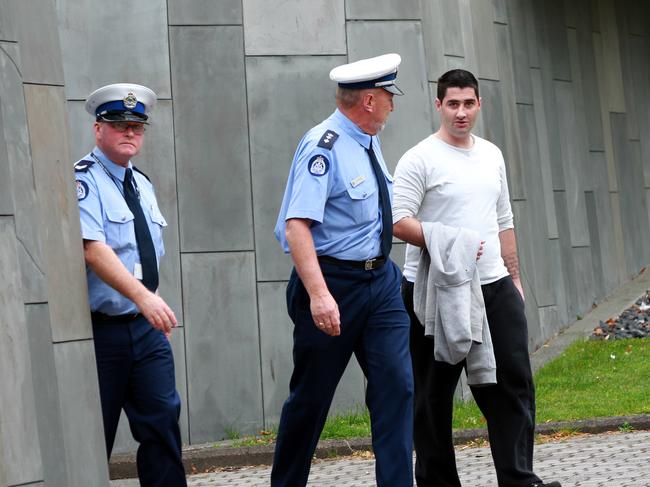Hobart man who murdered victim in the street, knifing him deep to the heart, granted parole
In 2010, a Hobart man stabbed a stranger to death in the street. Today, he’s back on the street. FULL STORY >>
Police & Courts
Don't miss out on the headlines from Police & Courts. Followed categories will be added to My News.
- Invermay home torched overnight | Manhunt in Tasmania’s north as police search for pair
- Bowls club fights to reduce $1m payout for volunteer who burnt his hand barbecuing sausages
AFTER 11 years in prison, a Hobart man who murdered a stranger in the street by stabbing a knife through his heart has been released on parole.
Garry Thomas Petersen, then 31, murdered 25-year-old Jason Wallace in February 2010 after meeting him by chance in a Clarendon Vale street.
Peterson had just stolen a laptop – which was being used to play music for a group of people he was drinking with – from a nearby residence.
In his published comments on passing sentence, Supreme Court judge Peter Evans said one of Peterson’s friends approached him in a bid to retrieve the laptop, but he’d produced a folded knife and continued to flee.
Peterson then chanced upon Mr Wallace, who had just left his grandmother’s house, and the pair – both intoxicated – began to argue with each other verbally.
The fight then became physical, with Peterson repeatedly stabbing Mr Wallace and leaving wounds to his ear, abdomen and liver, thigh and forearm.
He also penetrated Mr Wallace’s heart to a depth of 13cm – a distance greater than the length of the blade.
Peterson was jailed for 18 years, with a non-parole period of 11 years.
In its newly-published decision, the Parole Board of Tasmania said Peterson had taken steps to address his behaviour while behind bars, including taking part in therapeutic programs to address his substance abuse and criminal conduct.
It said he’d developed insight into the impact of alcohol and drugs on his behaviour and recognised his tendency towards aggression and the need to find other strategies to deal with conflict.

“Additionally, it is reported the applicant had spoken about the impact of his offence on others and expressed regret towards his victim and others affected by the crime,” the board said.
Before his release on parole on March 1, Peterson had been housed in minimum security for the past year after having previously alternated between medium and maximum security.
Noting the impact of Peterson’s actions on his young victim’s family and the fact he’d been assessed as having a “very high risk and needs profile”, the board granted parole on the condition he be subject to electronic monitoring.
Peterson has also been ordered to undergo assessment for a mental health plan, and must not contact or approach registered victims.



